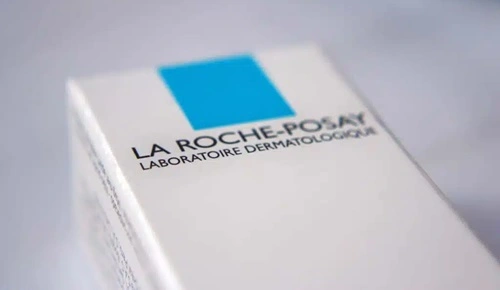La Roche-Posay Lawsuit involves the cosmetics giant L’Oréal, and concerns allegations against the acne treatment produced by La Roche-Posay, a dermatocosmetic brand owned by L’Oréal. The company is facing six class action lawsuits alleging excessively high concentrations of carcinogenic chemical benzene in its La Roche-Posay acne product.
At the core of the lawsuit is the detection of alarmingly high concentrations of benzene in the benzoyl peroxide acne treatment products of various manufacturers, including L’Oréal’s La Roche-Posay acne treatment. While the lawsuits are pending in court, the US Food and Drug Administration has given a list of several acne treatments by multiple brands like La Roche-Posay, Walgreens, Proactiv and others after finding benzene contamination in the same.
Source of the Controversy

In the year 2023, an independent laboratory named Valisure took representative samples of the benzoyl peroxide acne products manufactured by multiple brands like La Roche-Posay, Neutrogena, Walgreens, Proactiv, Asepxia, Estee Lauder, Johnson & Johnson and others. Testing of the samples revealed that nearly all the benzoyl peroxide acne products had a benzene concentration of more than the US FDA-mandated limit of 2 ppm. Moreover, the original packaging of the products emitted significantly high amounts of benzene, even when closed.
As per the president of Valisure, the benzene present in the benzoyl peroxide products comes from the ingredient itself, and its concentration can even reach hundreds of times the limit set by the FDA.
While benzene contamination in products like shampoos and sunscreens is linked to manufacturing errors, in case of benzoyl peroxide products, degradation of highly unstable benzoyl peroxide leads to high concentration of benzene.
High concentrations of benzene in any skincare product is a cause for concern because benzene is linked to many serious health conditions, including leukemia and other types of cancers.
Allegations contained in the lawsuit
The first La Roche-Posay Lawsuit against L’Oréal was filed in February 2024 by Jennifer Snow, a resident of Hawaii. Subsequently, another class action lawsuit was filed against L’Oréal by Kayla Mraz in a federal court in New York. Thereafter, four more La Roche-Posay lawsuits were filed in various jurisdictions.
Basic allegation in the lawsuits concern the presence of benzene in more than acceptable limit in La Roche-Posay’s Effaclar Duo Dual Action Acne Treatment. The lawsuits cite the tests conducted by Valisure which found that La Roche-Posay’s benzoyl peroxide acne treatment had benzene levels of 100 ppm after 10 days, 175 ppm after 14 days and 150 ppm after 18 days. Thus, the benzene levels were significantly higher than the FDA regulations allowing just 2 ppm of benzene in products in which its use is unavoidable. As per the lawsuits, Valisure’s detection of benzene has been confirmed independently by the industry.
The lawsuits also allege that the L’Oreal did not disclose the presence of benzene in its product, neither on the packaging and labeling nor in the marketing materials. Furthermore, the company did not warn its consumers that benzoyl peroxide contained in acne treatment products degrade into carcinogenic benzene even under normal storage and usage conditions.
Current Status
In August 2024, a US Judicial Panel on Multidistrict Litigation rejected a motion to consolidate all the lawsuits over benzoyl peroxide products into a single multidistrict litigation. It is pertinent to note here that many other manufacturers of multiple kinds of benzoyl peroxide products are also facing lawsuits in different jurisdictions, apart from L’Oreal for its La Roche-Posay acne treatment.
In November 2024, a motion was filed with the US Judicial Panel on Multidistrict Litigation to consolidate the six class action lawsuits against L’Oreal in the district of Hawaii. L’Oreal opposed this motion. A decision is still awaited in the matter.
Product Recall
Valisure had petitioned FDA to recall the products found to be contaminated with benzene, and revise industry guidelines, immediately after preparing its report on the same in March 2024. However, the regulator did not take any action at that point of time.
In the first half of March 2025, FDA listed 95 benzoyl peroxide skincare products in the market that may be at risk of benzene contamination. FDA conducted its own tests and found lesser number of products with small amounts of possible benzene contamination as compared to the number suggested in the Valisure report.
However, FDA’s list includes La Roche-Posay Effaclar Duo Dual Action Acne Treatment. Consequently, L’Oreal has voluntary recalled this product from the market.